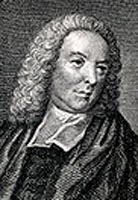“BATES and his HORSES Weighed in the Balance”
The same 27 Sept 1773 newspapers that ran Jacob Bates’s latest advertisements about his equestrian show at the foot of the Mall in Boston, as quoted yesterday, also ran advertisements for a new publication:
The words “Oh be a man!” came from Edward Young’s The Complaint, or Night Thoughts on Life, Death and Immortality (1742), where they appear twice:
Exactly what the poetic tag meant, and how performing tricks on horses was tantamount to murder, was presumably clearer in the published pamphlet. Except that no copy of that pamphlet has survived.
As Carl Robert Keyes’s Adverts 250 points out, the print shop on Hanover Street belonged to Joseph Greenleaf, an active Whig. That doesn’t mean the pamphlet reflected his own views, however; Greenleaf may well have taken on the job at the customer’s expense.
It’s also possible this pamphlet was never actually published. The advertisement for it ran in two newspapers, but only on that one Monday and never again. It appears to have reflected many New Englanders’ distrust of theatrics of all kinds—and yet Jacob Bates continued to perform.
TOMORROW: A clergyman at the exhibition.
In a few Days will be published, and sold at the Printing-Office in Hanover-street, Boston,The Sixth Commandment, in Hebrew and Protestant numbering, is the one that forbids murder.
A Pamphlet, entitled,
BATES and his HORSES
Weighed in the Balance.
In which is shewn, with great Brevity, that his Exhibitions in Boston, are impoverishing, disgraceful to human Nature, and downright Breaches of the Sixth Commandment.
OH BE A MAN! Young.
The words “Oh be a man!” came from Edward Young’s The Complaint, or Night Thoughts on Life, Death and Immortality (1742), where they appear twice:
Oh, be a man! and thou shalt be a god!Or that phrase might just have been an allusion to Bates’s self-vaunted “Horsemanship” and “Variety of manly Exercises.”
And half self-made!—Ambition how divine!
. . .
Oh! be a man;—and strive to be a god.
“For what? (thou say’st)—to damp the joys of life?”
No; to give heart and substance to thy joys.
Exactly what the poetic tag meant, and how performing tricks on horses was tantamount to murder, was presumably clearer in the published pamphlet. Except that no copy of that pamphlet has survived.
As Carl Robert Keyes’s Adverts 250 points out, the print shop on Hanover Street belonged to Joseph Greenleaf, an active Whig. That doesn’t mean the pamphlet reflected his own views, however; Greenleaf may well have taken on the job at the customer’s expense.
It’s also possible this pamphlet was never actually published. The advertisement for it ran in two newspapers, but only on that one Monday and never again. It appears to have reflected many New Englanders’ distrust of theatrics of all kinds—and yet Jacob Bates continued to perform.
TOMORROW: A clergyman at the exhibition.


No comments:
Post a Comment